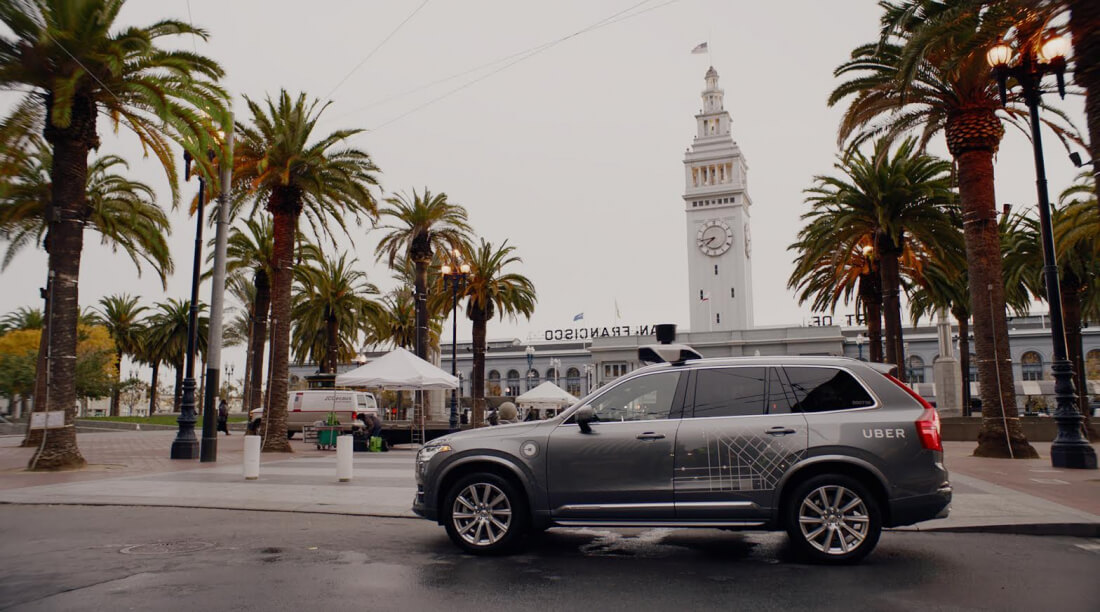Uber's battle with California's Department of Motor Vehicles has come to an end. Just over one week after they arrived in the city, the DMV has forced the ride-hailing firm's self-driving SUVs off San Francisco's roads.
On December 14, less than 24 hours after Uber introduced its autonomous Volvo XC90s to its hometown, the state's DMV threatened the company with legal action unless it registered for a permit to conduct self-driving vehicle testing.
Uber argued that it doesn't need a permit because its SUVs have a person behind the wheel at all times monitoring the system, so they can't be considered fully autonomous. Anthony Levandowski, head of Uber's autonomous vehicle program, called the company's stance "an important issue of principle."
But after numerous reports of the vehicles breaking road laws and endangering cyclists, the DMV finally ran out of patience with Uber last night. The agency revoked the registration of 16 self-driving vehicles Uber was using in its San Francisco testing.
The company said it will now look at other locations where it can continue testing its driverless cars.
"We have stopped our self-driving pilot in California as the DMV has revoked the registrations for our self-driving cars. We're now looking at where we can redeploy these cars but remain 100 percent committed to California and will be redoubling our efforts to develop workable statewide rules," the company said in a statement.
The DMV claims that it had invited Uber to apply for a permit at the same time as it revoked the vehicle registrations. It added that it could take less than 72 hours for the permits to arrive once the applications were complete.
More than 20 other companies have successfully applied to test self-driving vehicles in California. It's been suggested that Uber was against the process because it didn't want to hand over its autonomous car data to regulators.
Uber's Pittsburgh self-driving program, which began in September and uses Ford vehicles, will continue.
